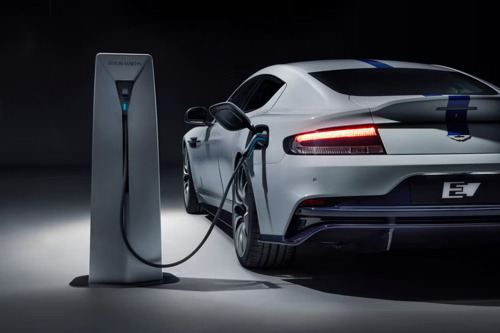Aston Martin’s timeline for launching an electric vehicle (EV) remains uncertain, with the first model now expected no earlier than 2026.
However, CEO Adrian Hallmark has indicated a more flexible timeframe, stating that the company’s first electric model will arrive "this decade." This suggests the launch could stretch closer to 2030.
Wealthy buyers resist EV shift

One of the key reasons for the delay is customer reluctance. Speaking to Automotive News, Hallmark revealed that a segment of Aston Martin’s clientele "hates [EVs] with a deep-rooted passion because they think they are being told they can't have a V-12 or V-8."
He also noted that for wealthy customers, being told "No" is a surefire way to create resistance.
Despite this, the company acknowledges shifting attitudes. "More and more people are pro-EV," Hallmark admitted, suggesting that while resistance remains, demand is evolving.
The brand is still debating whether its first EV will be an entirely new model or based on an existing nameplate.
Weight concerns and solid-state battery solutions

Beyond customer hesitation, EV weight presents a significant engineering challenge. Aston Martin highlights that a traditional combustion engine adds around 150kg, whereas current battery packs weigh between 700 and 800kg.
The company sees solid-state batteries as the long-term solution, projecting a 30% weight reduction compared to today’s technology.
Luxury brands face similar pushback
Aston Martin is not alone in facing reluctance from high-end buyers.
Before its acquisition by BMW, Alpina reported similar sentiments among its customers.
Likewise, Bugatti Rimac CEO Mate Rimac has acknowledged that some ultra-luxury buyers remain unconvinced by electric hypercars.
As the auto industry shifts, Aston Martin must balance tradition with innovation. The brand remains committed to electrification, but the timeline and execution will depend on both technical advancements and customer readiness.





